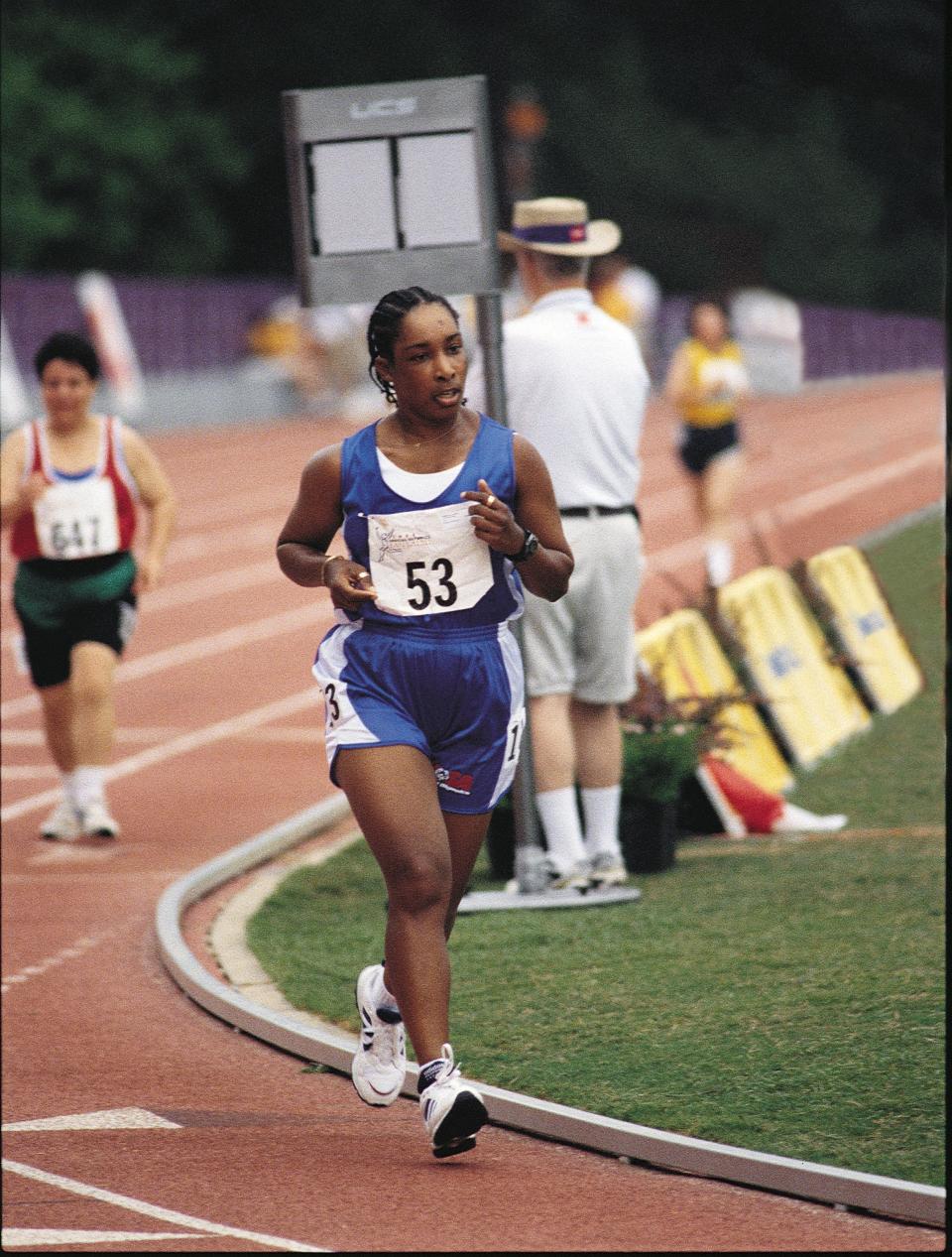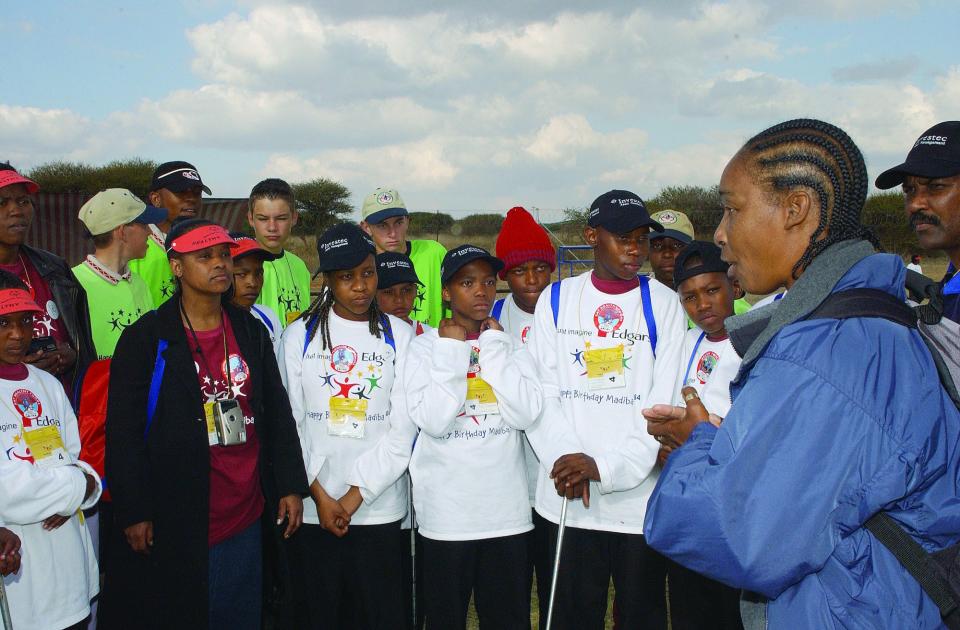Loretta Claiborne Doesn’t Want You to Feel Inspired. She Wants You to Change Your Mind
If there’s one job that seems tailor-made for 2020, it belongs to Loretta Claiborne, chief inspiration officer for Special Olympics.
It’s not a fluff title. True, six months ago inspiration did feel fluffier—a well-designed quote to post on Instagram, sage words of wisdom from another millennial girlboss. But today, deep into a crisis that has rocked the global community, our hunger for inspirational content feels deeper. To be inspired is to act, to have empathy, to change the way you think.
This is Claiborne’s precise expertise. She’s run in 26 marathons—twice placing in the top 100 women in the Boston Marathon—was inducted into the Women’s Sports Hall of Fame, and won the ESPY Arthur Ashe Award for Courage. She also has an intellectual disability.

Her wins, as she sees them, aren’t about sparking those warm, fuzzy feelings you get when you read about someone overcoming an obstacle. They’re about changing minds. Your mind.
Claiborne doesn’t want to inspire people to get out and run (though she does recommend it). She wants to inspire people to have more empathy in a moment where we’re collectively experiencing the sense of isolation people with intellectual disabilities face every day. “These are tough times, but I'm hoping people learn, ‘Gee it’s not just me here; maybe I need to look up and see who is lonely in my neighborhood. Maybe I could reach out,’” she says. “It doesn’t take a long time. Just a hand wave means a lot.”
Claiborne found sports through her brother. While other girls were playing dolls in the housing project in Pennsylvania where she grew up, Claiborne was mostly alone. So she’d tag along with her brother while he practiced track drills in a field near their home. When she was around 12, he took up long distance running—so she did too. “I started following him on his runs and would carry the towel. He’d look back—he’d always keep his eyes on me,” she says.
In high school, Claiborne enrolled in a school-to-work program for special education students, attending class one week and getting job training the next. Her only problem was the commute. “I had some behavior problems and I had a bad temper. I had to take medication,” she says. “I didn’t want anybody bothering me, so I would just run to work and back.” It wasn’t long before a counselor noticed and offered her a “golden ticket”—a chance to train for the 1970 Special Olympics.
“When he first got me into it, I went to the first practice and then I quit,” Claiborne says. “But my mom said, ‘If you quit today, you’ll always be quitting.’” She went back to the next practice. Since then she’s competed in six Special Olympics World Games, bringing home 10 medals for bowling, figure skating, and running.
Becoming a Special Olympics athlete wasn’t about the medals—it was a way to feel less isolated. “Running was something that I could do where nobody could sit there and belittle me. Running was my lifesaver,” she says. “I still remember going to the Special Olympics in Los Angeles in 1972 at Drake Stadium at UCLA. I was just in awe to say I was now on the track where the best of the best ran. I was a kid from the projects—but I felt like Michael Jordan.”
Special Olympics became a place for Claiborne to let the limits she’d been told about what a girl with an intellectual disability could do slide right off her shoulders and onto the track. “I remember in high school we played half-court basketball because we were told as young girls that playing full court was going to hurt you,” she says. “I would go running around the projects, and my mom would say, ‘You need to stop that running. You’re going to look like a man.’ Well, I don't look like a man. That’s terrible.”

She feels the stereotypes particularly sharply as a Black woman. “For African American women and men, the only time we were really seen as having value was when we were on the field. And that's a terrible way to see somebody. You should see somebody as a whole person,” she says. “In my case, with an intellectual disability, if they can’t see that you prosper on a playing field or prosper in business, then you’re nothing to them.”
Sports are Claiborne’s chance to shine—not just to break barriers but to challenge the idea that there was ever a reason to have them in the first place. “I hope that whatever comes out of my life, people feel better about people with intellectual disabilities,” she says. “I don't need my name on buildings. I don't need my name anywhere. But I hope people think back on my life and see that everyone deserves to have the right to work, to live, to play.”
Macaela MacKenzie is a senior editor at Glamour covering wellness and women’s equality in sports.
Originally Appeared on Glamour

